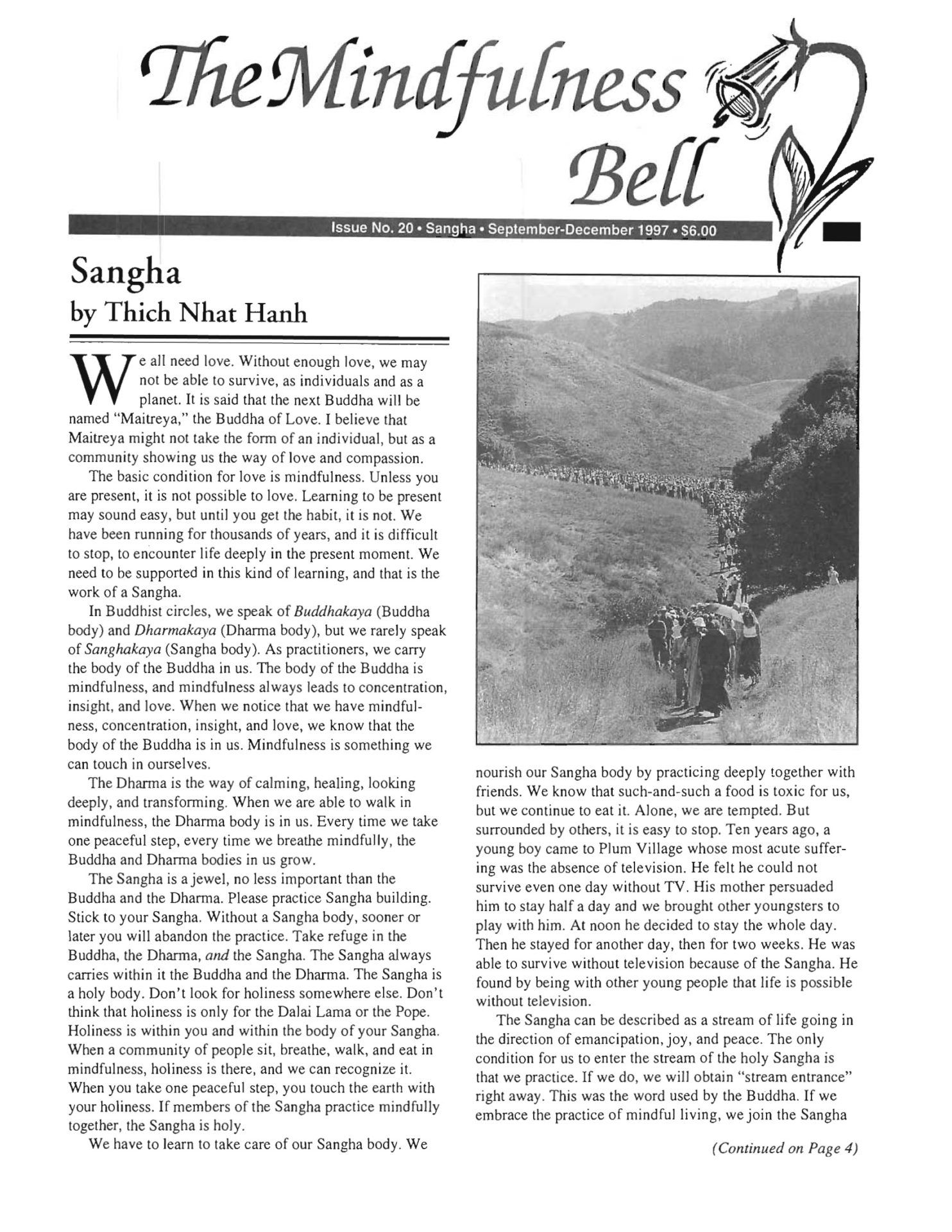The Buddha taught Six Concords to help his disciples have happiness in their daily life together. Concord is the basis of a Sanghakaya.
The first is the Concord of “bodily action.” A Sangha lives together like a family. Our actions affect all those with whom we live, so our actions need to be conducive to concord.
The second is the Concord of “sharing the benefits.” We share food,
The Buddha taught Six Concords to help his disciples have happiness in their daily life together. Concord is the basis of a Sanghakaya.
The first is the Concord of "bodily action." A Sangha lives together like a family. Our actions affect all those with whom we live, so our actions need to be conducive to concord.
The second is the Concord of "sharing the benefits." We share food, sleeping accommodations, and the opportunity to practice sitting and walking meditation. We listen to the Dharma together. We share all sorts of benefits with each other. If one person has three days to go on retreat, others in the Sangha should have the same opportunity at some time. We support each other.
The third is the Concord of "keeping the same mindfulness trainings." Our aspirations are the same, and we agree that practicing the same mindfulness trainings is the best way to realize those aspirations.
The fourth is the Concord of "speech." Our speech also needs to inspire concord. We need to base our speaking on certain principles, such as knowing how not to react when we hear something we do not like, knowing how to make note of what the other says in order to be able to meditate on it before we reply, and knowing how to encourage and increase the confidence of those we talk to.
The fifth is the Concord of "view." We come from different backgrounds. We cannot possibly share the views of everyone in our community. But we do not assume that our view is correct and others' views are wrong. We don't argue about our different views. When we have an idea, we share it with the other members of our Sangha, and we modify our ideas as we listen to others. A Dharma discussion is an opportunity to listen carefully to all the different viewpoints in order to have deeper insight. Our own idea is only one small part of the picture. When others speak, we listen carefully to find the wisdom in their words. If we cannot listen to others, we cannot learn. We need to help others know they are accepted and appreciated.
The sixth is the Concord of "activity of mind" We have different ways of thinking and different feelings. We should not isolate ourselves on the island of our thinking. We have to communicate. When we see someone drowning in their thinking, their sadness, and their suffering, we can say to them, "A penny for your thoughts," or, "A penny for your feelings." When the other person is able to share his feeling, he is no longer isolated. When we express what is happening in our mind to another person, it relieves our isolation. If you ask someone, "What are you feeling?" and she says, "I am unhappy," you can practice walking meditation together and that alone will bring some joy.
Photos: First photo by Karen Preuss. Second photo by Michael Grossi.

